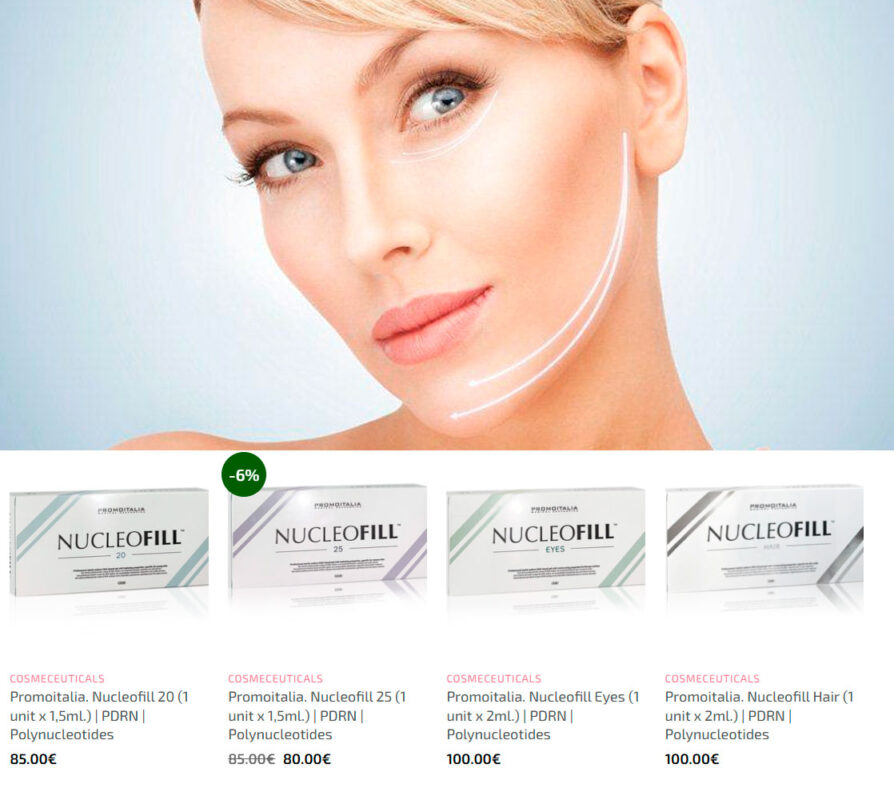Articles on cosmetology
Cosmeceuticals
Cosmeceuticals, blending elements from both cosmetics and pharmaceuticals, combine the attributes and advantages of both domains.
Their distinguishing characteristic lies in their dual focus: not only do they enhance external beauty and improve skin appearance, but they also can help with specific skin concerns, including but not limited to acne, skin aging, and other dermatological issues.
Key features of cosmeceuticals:
- Clinical testing and scientific validation: Cosmeceutical products undergo thorough clinical trials and are supported by scientific research, guaranteeing both their efficacy and safety.
- High concentration of active ingredients: Cosmeceutical products contain heightened levels of active ingredients and beneficial components, such as vitamins, antioxidants, peptides, retinoids, and hyaluronic acid. These ingredients play a pivotal role in treating and enhancing various skin conditions, promoting overall skin health and vitality.
- Precise targeting of individual skin concerns: Cosmeceutical products are engineered to effectively tackle a range of specific skin issues, including but not limited to wrinkles, pigmentation irregularities, dryness, excessive oiliness, and various other dermatological concerns.
- Long-lasting results: In contrast to conventional cosmetic products, cosmeceuticals are formulated to deliver enduring improvements, focusing on long-term enhancements and promoting the overall health of the skin rather than offering only temporary enhancements to its external appearance.
- Prescribed products: Cosmeceutical products are frequently recommended by cosmetologists or dermatologists based on the specific skincare requirements of each client.
- Safety and quality control: Cosmeceutical products undergo rigorous quality control and safety checks to guarantee their effectiveness and reduce the likelihood of side effects.
The use of cosmeceutical products can offer significant advantages to individuals dealing with serious skin conditions, providing them with scientifically supported and efficient approaches for their skin issues.
Cosmeceutical products blend characteristics from both cosmetics and pharmaceuticals. They are designed not only to improve skin appearance but also to actively address its condition and promote overall skin health.
Types of cosmeceutical products:
— Anti-aging creams and serums: These products are enriched with high concentrations of active ingredients like retinoids, peptides, and antioxidants. They work to diminish the appearance of wrinkles, boost collagen production, and refine skin texture.
— Acne-fighting products: Cosmeceutical products designed to address acne concerns contain active ingredients like salicylic acid, benzoyl peroxide, and azelaic acid. These components can help to reduce inflammation, regulate sebum production, and prevent blemish formation.
— Brightening skincare products: These products contain components like hydroquinone, alpha-arbutin, and kojic acid, known for their ability to reduce pigmentation and promote a brighter complexion of the skin.
— Moisturizing and soothing products: Cosmeceutical products aimed at moisturizing and calming the skin contain ingredients like hyaluronic acid, aloe vera, and plant extracts. These components work to deeply hydrate and alleviate irritation or dryness.
— Sunscreen products: Cosmeceutical sunscreens contain high concentrations of active ingredients like zinc oxide and titanium dioxide. These ingredients help to protect the skin from damaging ultraviolet rays, effectively preventing premature aging.
It’s crucial to ensure that the cosmeceutical products you use are suitable for your skin type and they can address your skin concerns. Consulting with a dermatologist or cosmetologist before incorporating these products into your skincare routine is recommended.


